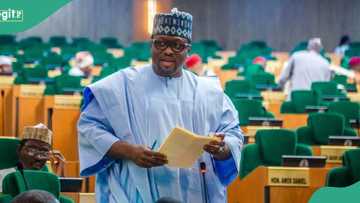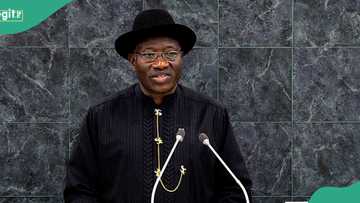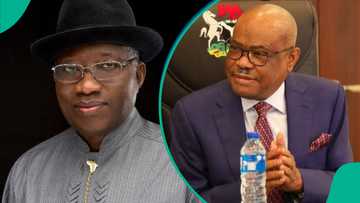Ivory Coast President Ouattara Wins Fourth Term in Landslide Victory
- President Alassane Ouattara wins a fourth term with 89.77% of the votes amid low turnout and limited opposition participation
- Key rivals Laurent Gbagbo and Tidjane Thiam were barred from the race, leaving Ouattara with minimal competition
- The 83-year-old leader vows to groom a new generation of Ivorian politicians and sustain economic growth
Ivory Coast President Alassane Ouattara has been re-elected for a fourth term after securing a sweeping 89.77 percent of the votes in the just-concluded presidential election, according to provisional results released on Monday.
The 83-year-old leader’s victory was largely anticipated after several of his most formidable rivals, including former President Laurent Gbagbo and ex-Credit Suisse CEO Tidjane Thiam, were ruled ineligible to run.
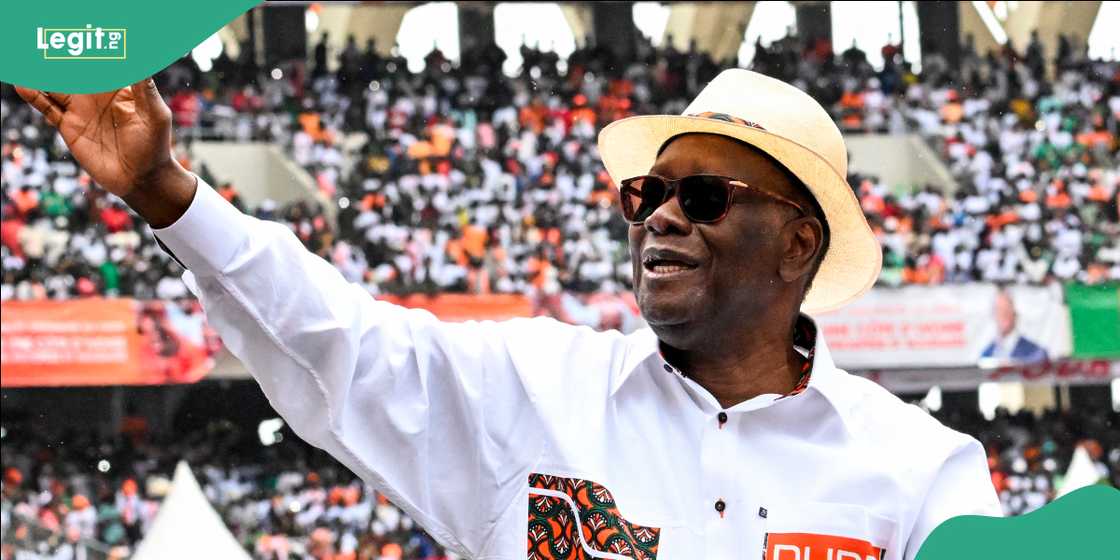
Source: Getty Images
The result marks Ouattara’s third successive commanding win since he first took office in 2011 after a violent election crisis that claimed about 3,000 lives.
His presidency has since been associated with a stretch of political calm and steady economic growth in the world’s largest cocoa-producing nation.
Low turnout and limited competition
The electoral commission reported a turnout of roughly 50 percent, a figure comparable to previous elections but significantly lower than the voter enthusiasm seen during the first round in 2010.
Former Commerce Minister Jean-Louis Billon came a distant second with 3.09 percent of the vote, while former first lady Simone Gbagbo secured 2.42 percent. Gbagbo later called Ouattara to congratulate him on his win, according to local reports.
Many Ivorians, however, expressed disillusionment with the process, citing a lack of genuine competition.
“There was no point in voting. Everything was put in place for Ouattara to win these elections. Candidates Thiam and Laurent Gbagbo were eliminated. There was nothing at stake,” said Arsene Kanga, a machinist in Abidjan.
Analysts believe the low voter enthusiasm reflects growing public apathy toward politics since the deadly 2010 post-election conflict.
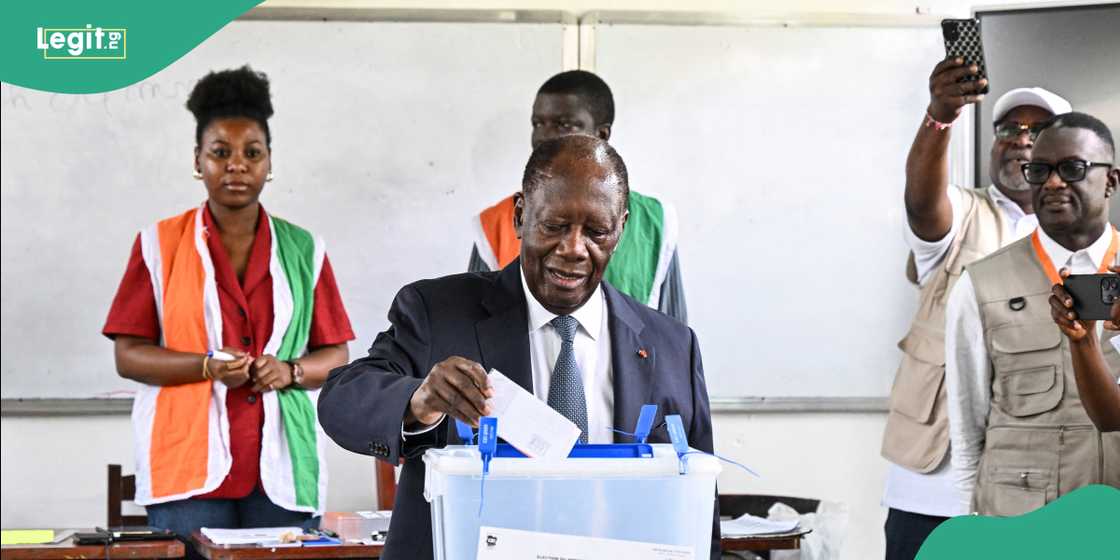
Source: Getty Images
“People saw that they didn’t have a future with politics, or they couldn’t imagine that politics would bring positive change to the country,” said Rinaldo Dipagne of the International Crisis Group.
Focus on Stability and New Leadership
Ouattara, a former top official at the International Monetary Fund, has promised to sustain economic progress and attract further private investment during his new term.
He also pledged to begin a generational shift in leadership by preparing younger politicians to assume national responsibility.
Political observers say that promise could prove decisive for the country’s future. Without a clear successor and with internal divisions in the ruling party, analysts warn that Ivory Coast could face renewed political uncertainty reminiscent of the instability that followed the death of its founding president, Felix Houphouet-Boigny.
Saturday’s election day passed without major disruption, though several towns witnessed protests earlier in the week.
Authorities deployed 44,000 security personnel nationwide and imposed curfews in areas such as Yamoussoukro. Rights groups like Amnesty International have criticized the government for restricting protests and detaining opposition supporters.
The Constitutional Council is expected to confirm the election results in the coming days, formally securing Ouattara’s extended grip on power.
World's oldest President Biya wins 8th term
Earlier, Legit.ng reported that Cameroon’s 92-year-old President Paul Biya had been declared the winner of the country’s presidential election, extending his more than four-decade rule.
The Constitutional Council announced on Monday, October 27, that Biya secured another seven-year term, making him one of the world’s longest-serving and oldest heads of state.
Source: Legit.ng


